[Event Report] 2023 Taiwan Renewable Procurement Summit 臺灣綠電交易高峰會活動報導
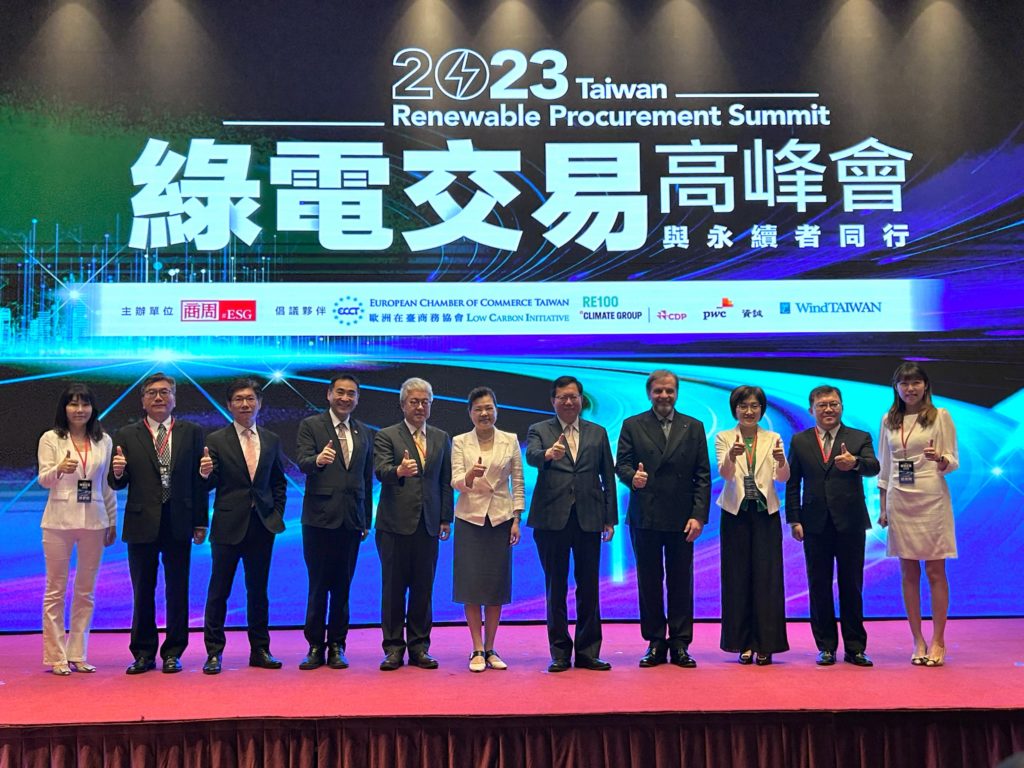 The VIPs from the government, ECCT, LCI members, and Business Weekly (L-R): T. Lin, Vice Chairman, Han Nan Commercial Bank (4th); Chu Chi-chung, President, Business Weekly Group (5th); Wang Mei-hua, MOEA Minister (6th); Cheng Wen-tsan, Vice Premier, Executive Yuan (7th); Giuseppe Izzo, ECCT Chairman (8th); Liu Pei-sheu, Editor in Chief, Business Weekly (9th); Huang Zhi-wen, Chief of 6th Division Section, BSMI, MOEA (10th).
The VIPs from the government, ECCT, LCI members, and Business Weekly (L-R): T. Lin, Vice Chairman, Han Nan Commercial Bank (4th); Chu Chi-chung, President, Business Weekly Group (5th); Wang Mei-hua, MOEA Minister (6th); Cheng Wen-tsan, Vice Premier, Executive Yuan (7th); Giuseppe Izzo, ECCT Chairman (8th); Liu Pei-sheu, Editor in Chief, Business Weekly (9th); Huang Zhi-wen, Chief of 6th Division Section, BSMI, MOEA (10th).
- Photo Gallery: Facebook/ LinkedIn
- Event Review Video: LCI/ Business Weekly
- Press Release
The ECCT’s Low Carbon Initiative (LCI was a co-organiser of the 2023 Taiwan Renewable Procurement Summit together with Business Weekly (商業週刊) and RE100 for the second consecutive year. At the event, opening remarks were made by Cheng Wen-tsan, Vice Premier of the Executive Yuan (行政院副院長 鄭文燦), Wang Mei-hua, Minister of the Ministry of Economic Affairs, ECCT Chairman Giuseppe Izzo, Kuo Yi-ling, Vivien Liu, Editor in Chief of Business Weekly (商業周刊總編輯 劉佩修) and Sam Kimmins, Head of RE100.
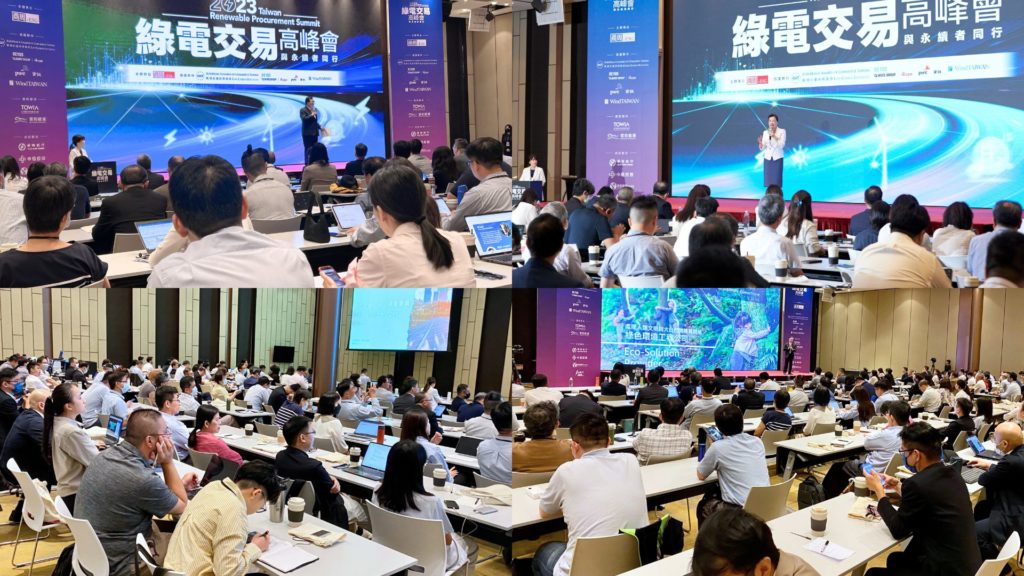 This event brings together policymakers, corporate leaders, and the general public, with over 210 attendees.
This event brings together policymakers, corporate leaders, and the general public, with over 210 attendees.
The summit brought together policymakers and corporate leaders to engage in discussions associated with renewable procurement, including how the government is formulating policies to provide corporations, especially SMEs, with solutions for purchasing green electricity at affordable prices, real cases of major electricity consumers investing in renewable energy, and challenges and opportunities facing Taiwan's traditional industries, which must cut their carbon emissions to comply with Europe’s Carbon Border Adjustment Mechanism (CBAM) and the requirements of their supply chain partners. The event was attended by an audience of over 250.
RE100 currently has over 400 members globally, of which 26 are headquartered in Taiwan. Taiwan is not alone among Asia Pacific countries where companies are having difficulty securing sufficient supplies of renewable electricity. While progress has been made over the past year, such as the opening of Taiwan’s third offshore wind farm and amendments to the Renewable Energy Development Act that mandates rooftop solar panels for new buildings, among others, aspects of Taiwan’s regulatory environment are slowing down progress. Of particular concern to offshore wind energy players is Taiwan’s local content requirements, which are slowing down progress and making projects more expensive. Meanwhile, Environmental Impact Assessment requirements for onshore wind were recently increased from 250 to 500 metres, affecting an estimated 50% of onshore projects currently under development, which is further adding to project permitting uncertainties for developers.
Besides building sufficient renewable energy capacity, governments will also need to invest heavily in grid infrastructure and the means to balance the intermittency of solar and wind energy by building storage capacity through batteries or the use of green hydrogen or geothermal power.
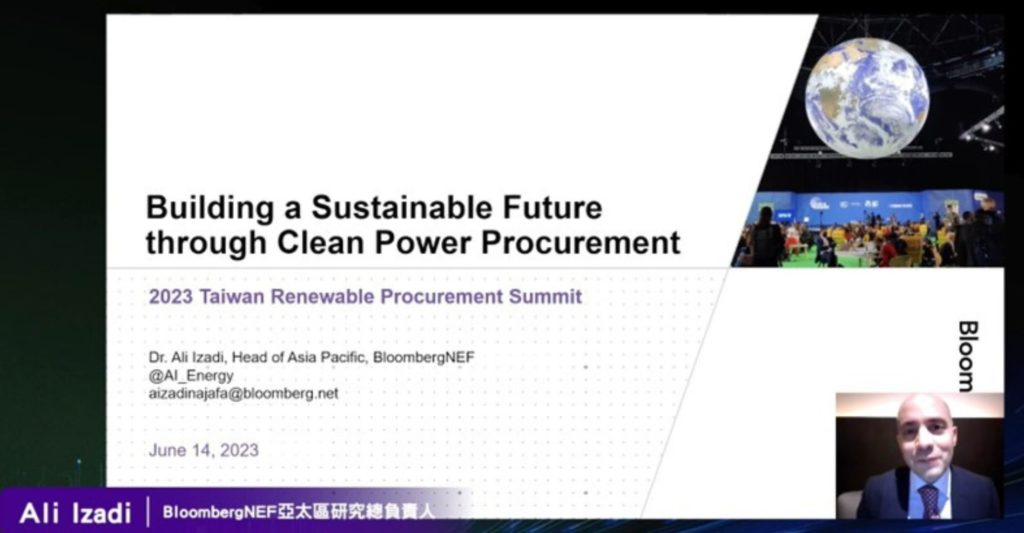 Dr Ali Izadi, BloombergNEF Asia Pacific Research Director, shared his view on building a sustainable future.
Dr Ali Izadi, BloombergNEF Asia Pacific Research Director, shared his view on building a sustainable future.
In his presentation Dr Ali Izadi, BloombergNEF Asia Pacific Research Director, reported that global investments in green energy continue to rise and reached a record level of over US$1.11 trillion in 2022. Meanwhile the average cost of renewable energy continues to fall year by year and is now cheaper than coal in most countries.
There are several ways that RE100 companies use to acquire green energy. The most common method is through corporate power purchase agreements (CPPAs), usually arranged on an annual basis. Green tariffs are another method used by utilities in some states in the United States. Many companies are also building their own renewable energy facilities onsite. However, this only works well if the facilities are connected to the grid so that companies can both earn revenue from excess power generated and get power from the grid when their facilities are not producing. The purchase of Renewable Energy Certificates (RECs) is a method that is growing in popularity in several countries, including South Korea and Taiwan. However, just having a REC system in place does not necessarily lead to greater investments in renewable energy.
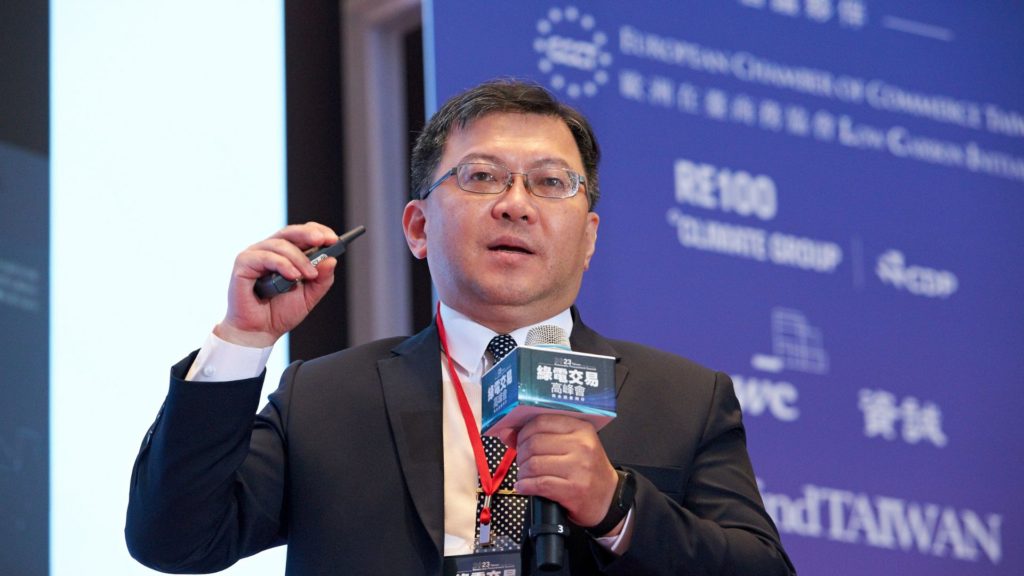 Huang Zhi-wen, MOEA BSMI Chief of 6th Division Section, sharing his insight at the Taiwan Renewable Procurement Summit.
Huang Zhi-wen, MOEA BSMI Chief of 6th Division Section, sharing his insight at the Taiwan Renewable Procurement Summit.
The first session included a presentation by Huang Zhi-wen from the Bureau of Standards Inspection and Quarantine under the Ministry of Economic Affairs spoke about RECs and green energy trading and Toby Walker, Senior Impact Officer from RE100, who gave a presentation on the “RE100 model: Key to investing in renewable energy”.
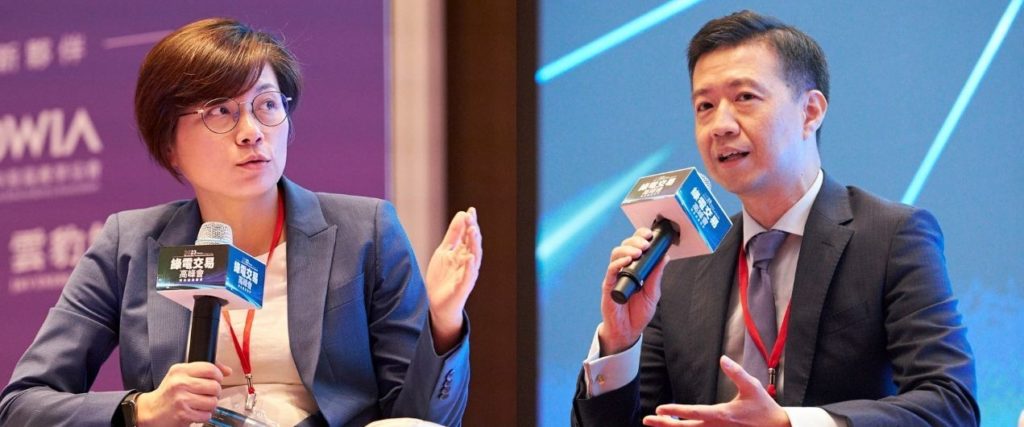 (L-R): Jennifer Wang, LCI Vice Chair; Ethan Tsai, PwC New Energy Business Service Director
(L-R): Jennifer Wang, LCI Vice Chair; Ethan Tsai, PwC New Energy Business Service Director
In the second session, representatives from domestic enterprises shared their experiences of the challenges and opportunities in Taiwan’s energy transformation. To conclude the session, Jennifer Wang, LCI Vice Chair participated in a panel discussion together with local business managers about Taiwan’s preparedness for the era of green electricity.
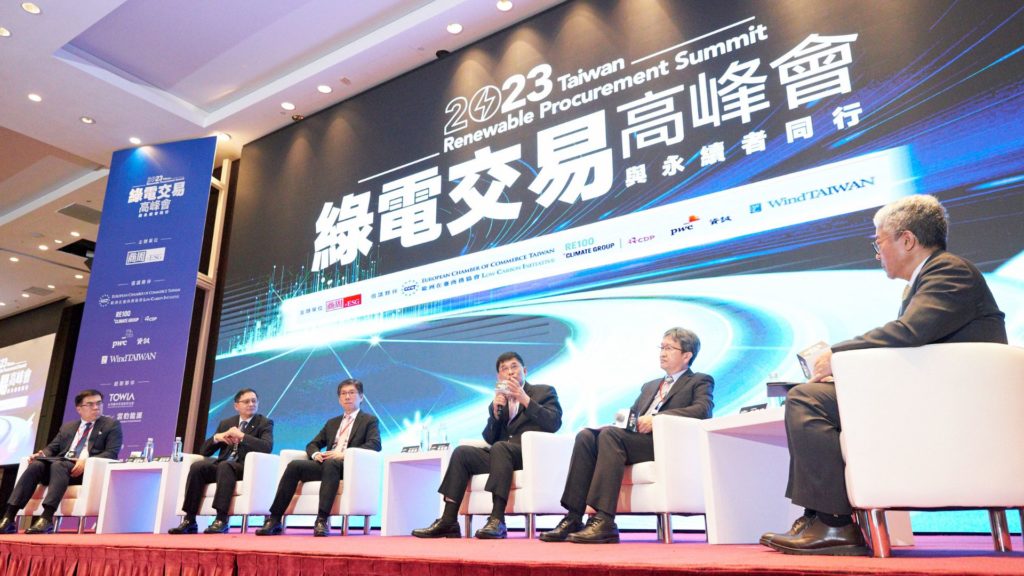 During the panel discussion, the speakers engaged in a lively and meaningful dialogue about green vision with local communities.
During the panel discussion, the speakers engaged in a lively and meaningful dialogue about green vision with local communities.
The first afternoon session covered the topics of how enterprises can overcome the problem of purchasing green electricity, empowering residences with green energy, how landlords of commercial office buildings in metropolitan areas can accelerate green energy transformation and how corporate participation in start-ups can drives new green business models. The session was concluded with a panel discussion on the topic of how a green vision is compatible with the needs and demands of local communities.
